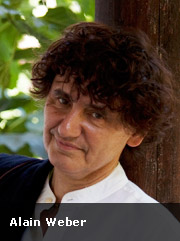
In time gone by, the jewels of wisdom were freely acknowledged to be held by women, with their knowledge and farsightedness. With their ancestral heritage and imagination, the women of the Orient are visionary poets and musicians. They lead us on a journey to a world made sacred by their intelligence and grace.
The programme of this 22nd Fes Festival reflects the different facets of the feminine at the heart of music and the arts. Every one of our artists echoes this idea of wisdom, symbolised by Fatima El Fihriya, also known as Oum El Banine, who endowed the Karaouine Mosque and University in Fes. Such strength, sensitivity and creativity affirm Fes as a founding pillar of musical diversity and principle of an enduring richness of cultural heritage. Such heritage could not have existed without these female purveyors of consciousness and sensitivity, determined as they were to spread this cherished word within their own communities and universally. Today, new voices arise: a young generation continues to transmit the heritage of its elders, poets of the mountains and the deserts.
These women come from the Arab world, the Far East, Brazil, Africa, the Indian subcontinent, Europe and of course from Morocco, like the beads of a rosary. In Sufism, prayer beads (selsela) represent the transmission, a renewed pledge and a centre of resistance in our time against globalisation.
Premieres
This year’s Festival offers several new works. Firstly, the opening concert has become a tradition in Fes. Dedicated to female stars, A Sky Full of Stars (Friday 6 May) pays exceptional tribute to the mythical women of the Orient and of Morocco whose stories are narrated by Sheherazade. Each story is represented by an extraordinary artist. Mapping graphics, audio-visual projections and a large orchestra take us on a journey into time and fantasy.
Three other premieres, Durbar, The King of Ghosts and Istanbul – Fes will be performed, establishing Fes as a place where heritage and the future are intimately linked.
Homage to India
Each Festival will, from now on, feature a particular country. This year is the turn of India’s creative genius, the country from which many of the stories of A Thousand and One Nights originate. Musical brilliance was to be found in the palace courtyards of the maharajahs and nabobs of old who encouraged the emergence and continuation of tradition and of unique artistic learning. We will discover this splendour at the concert entitled Durbar, presented on the majestic stage of Bab Al Makina (Saturday 7 May).
The first Night In The Medina (Monday 9 May) continues on this theme and is devoted to the art of the raga. Here we experience the vibrant yet contemplative quality of this classical music from those royal palaces where cosmic order was as much mimicked as challenged by the musical poetry.
The high point of our evening journey is The King of Ghosts (Monday 9 May). Bringing together a British/Indian group of artists and a Moroccan orchestra, this film-concert with an original score brings to life a jewel of one of the greatest Indian filmmakers, Satyajit Ray. Soumik Datta, master of the sarod lute, plays the parts of Goopy and Baghra, the heroes of these extraordinary adventures.
Finally, between 9 and 12 May, we have the Chota Divana Ensemble, young performers from the Manghaniyar and Langa communities of the Rajasthan desert. Poets and singers, they perform with rare beauty for the schoolchildren of Fes. This project is accompanied by a new film about them by Aurélie Chauleur, Les Petits Princes du Rajasthan (The Little Princes of Rajahstan). This unique initiative illustrates the significance of sharing culture.
Walks, workshops and performances
Also new for 2016: the Festival reaches to the very heart of the medina, and now spreads even further beyond the traditional venues. The magnificent Jnan Sbil, a recently renovated garden, is the venue for afternoon concerts beginning at 16h30, as well as for the Fes Forum. The garden creates a new link between the medina, Bab Al Makina and Boujloud Square.
Giant African puppets wandering the streets of the medina; a new musical initiative by artist Susie Ibarra to discover medina fountains and the Karaouine Library from an idea by architect Aziza Chaoui; the Taragalte Caravan from southern Morocco installed in Jnan Sbil – all have a nomadic theme that resonates with the architectural beauty of the city.
Alain Weber, Artistic Director, Fes Festival of World Sacred Music
